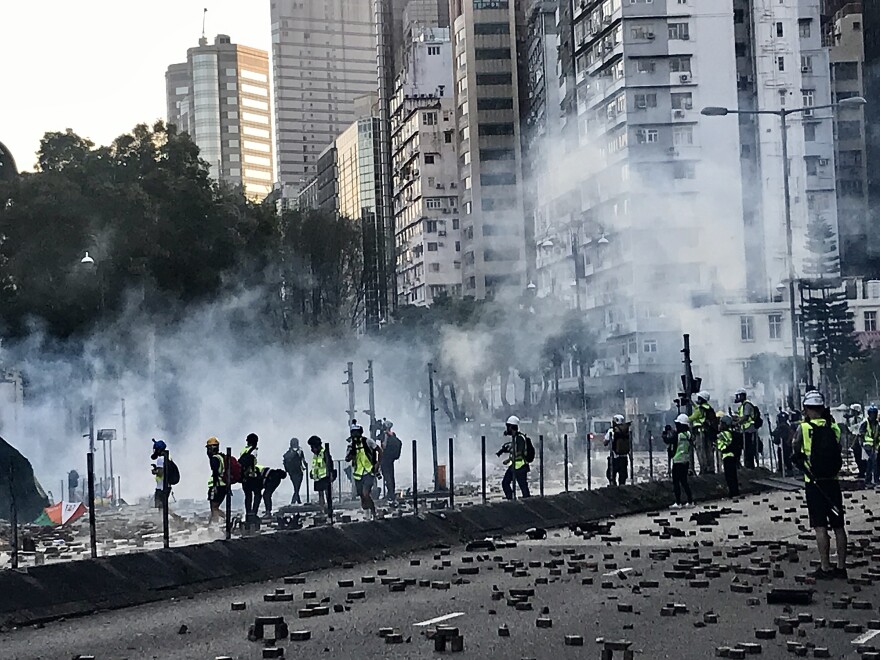Violence erupted this weekend around a besieged Hong Kong university, as protesters threw petrol bombs and fired arrows at police in an attempt to keep control of the campus.
Hong Kong police appealed to protesters early Monday, local time, to leave the scene of an intense stand-off and threatened to respond with live bullets if protesters continue to use what they called "lethal weapons." The warning came as a fiery clash between protesters and police outside the Hong Kong Polytechnic University entered its second night. Protesters have been hurling gasoline bombs while police have answered with tear gas and water cannons.
The weekend began with relative calm Saturday morning, but then turned into some of the most dramatic scenes the protests have seen yet. The clashes represent a substantial escalation in the nearly six months of turbulence, and sets the stage for another week of violence in China's semi-autonomous region.

The confrontation between protesters holed up inside the campus and the police has turned the grounds of Polytechnic University into a war zone. Tear gas canisters, debris and bricks dug up by protesters to block roads all litter the surrounding streets. Protesters shot arrows down on police and hurled scores of crude but effective gasoline bombs, some targeting water cannons that were used to drench demonstrators in deep blue torrents of dyed water.
Police say protesters burnt part of a footbridge they had turned into a garrison, and vandalized buildings. In the course of the unrest, protesters have repeatedly shut down Hong Kong's Cross-Harbor Tunnel that connects the island with Kowloon peninsula.
"We are not afraid," a year-three student Ah Long, who chose not to disclose his full name, told Reuters. "If we don't persist, we will fail. So why not (go) all in," he said.
As the stand-off persisted into the early hours of Monday morning, local media report that presidents of five universities issued a joint statement, calling for "restraint from all parties."
The months of unrest has alarmed Beijing, and this past week Chinese President Xi Jinping encouraged local leaders to restore order.
"We sternly support the Hong Kong police to take forceful actions in enforcing the law, and the Hong Kong judiciary to punish in accordance with the law those who have committed violent crimes," the state news agency Xinhua quoted him as saying.
Sunday's violence comes after the Chinese People's Liberation Army made a rare public showing to clean up Hong Kong's protest-worn streets. Soldiers from the Chinese army jogged out of their barracks dressed in black shorts and khaki green T-shirts, carrying buckets and brooms, clearing the streets of bricks and barricades left by demonstrators. It was the first time the PLA has appeared during the protests, and stoked fears among many Hong Kong residents that the Chinese army would be used to crackdown on the turmoil, reviving memories of Tienanmen Square 30 years ago.
Copyright 2020 NPR. To see more, visit https://www.npr.org.




